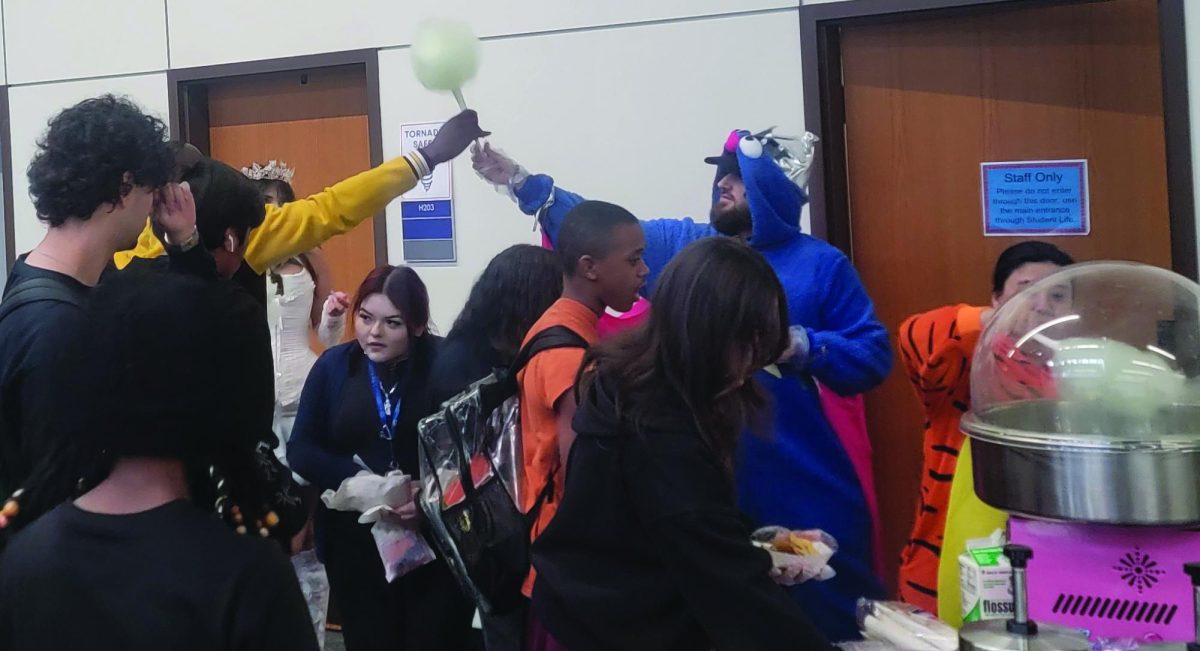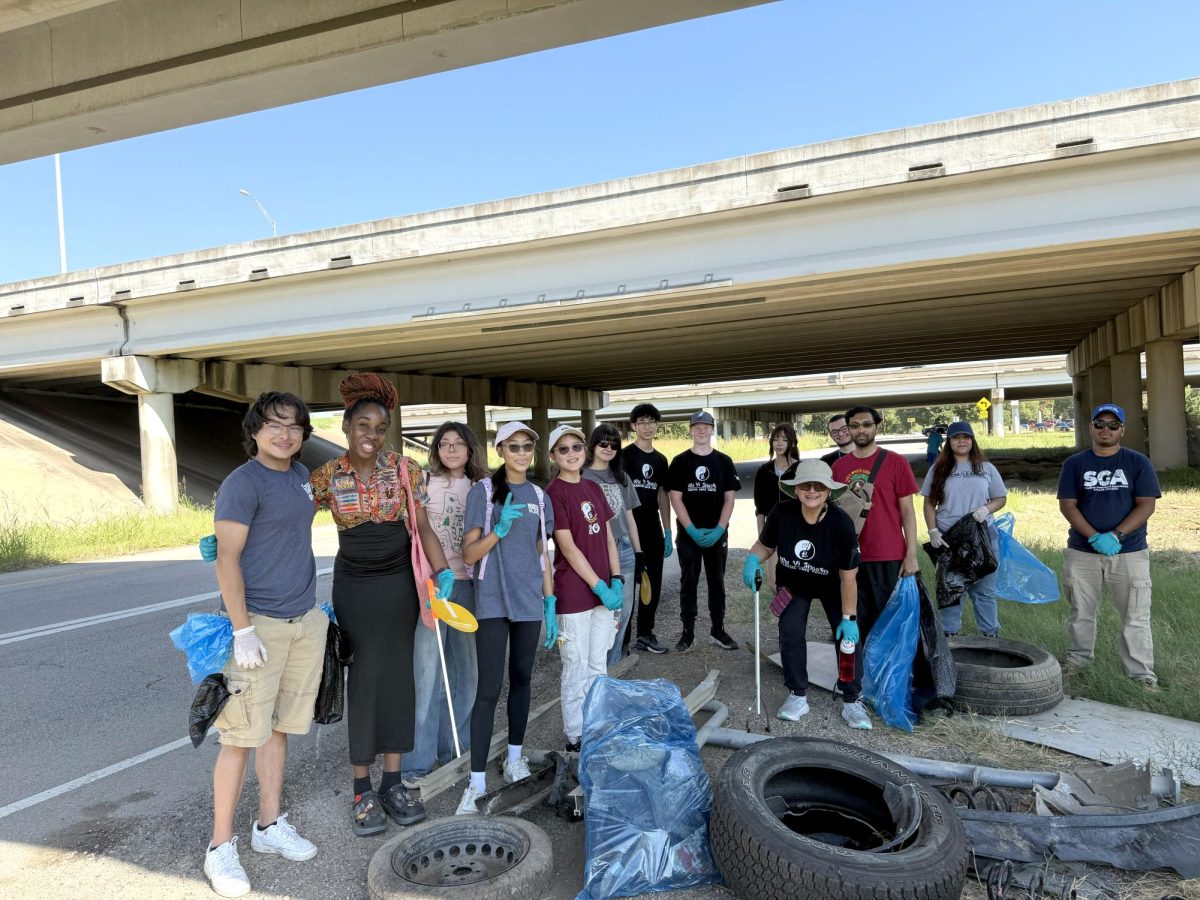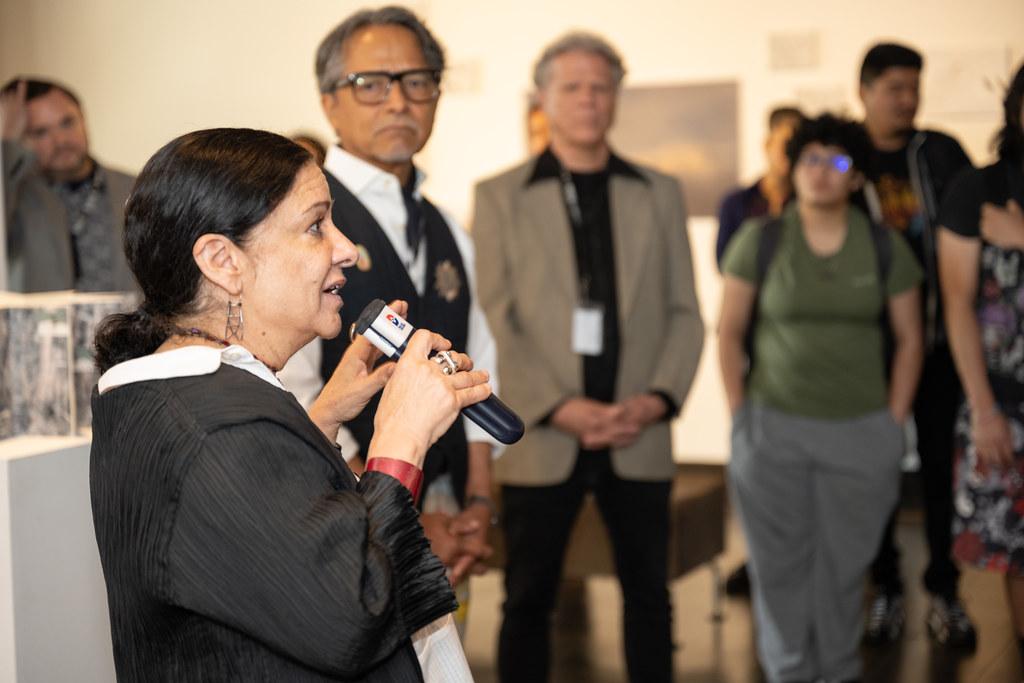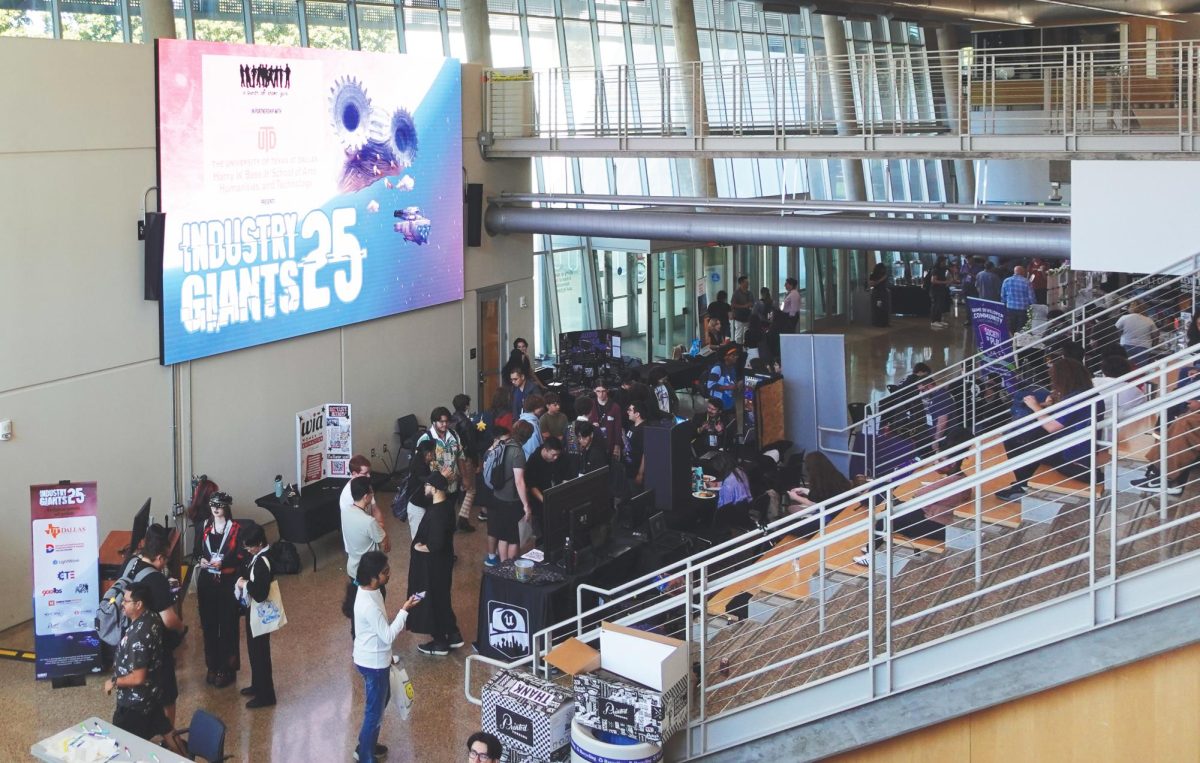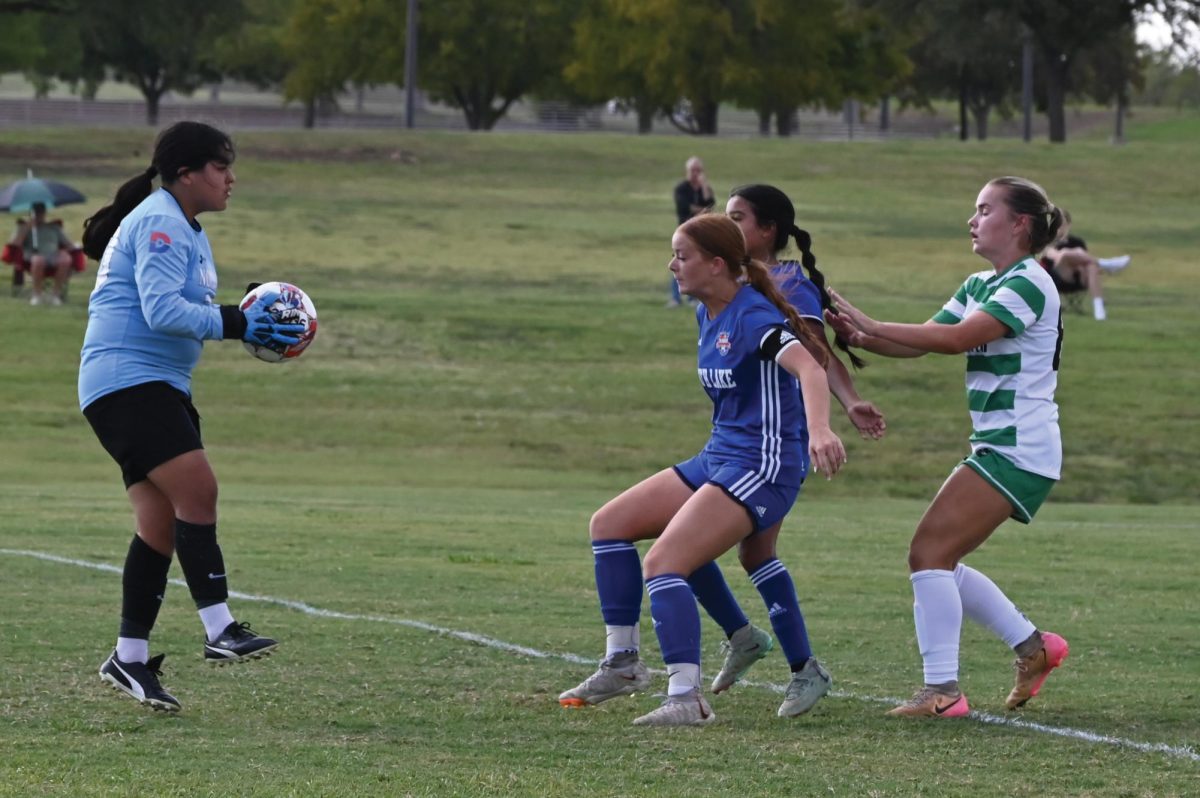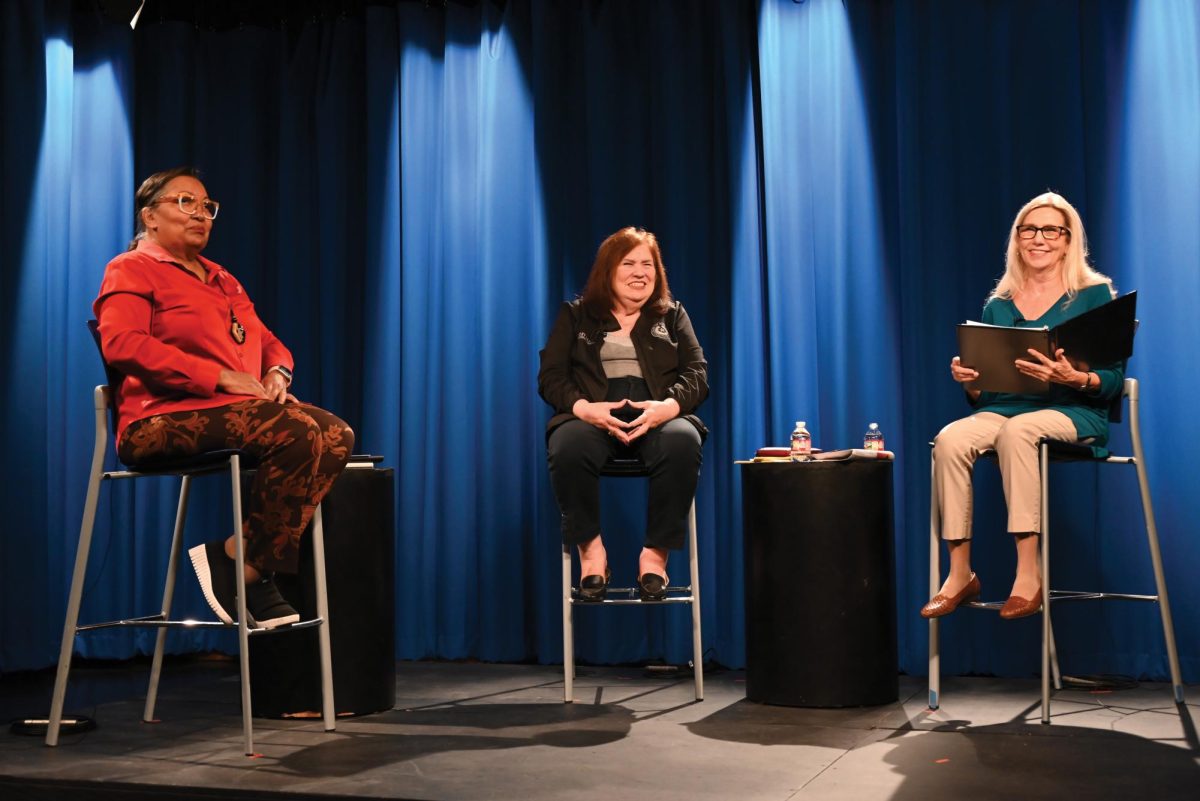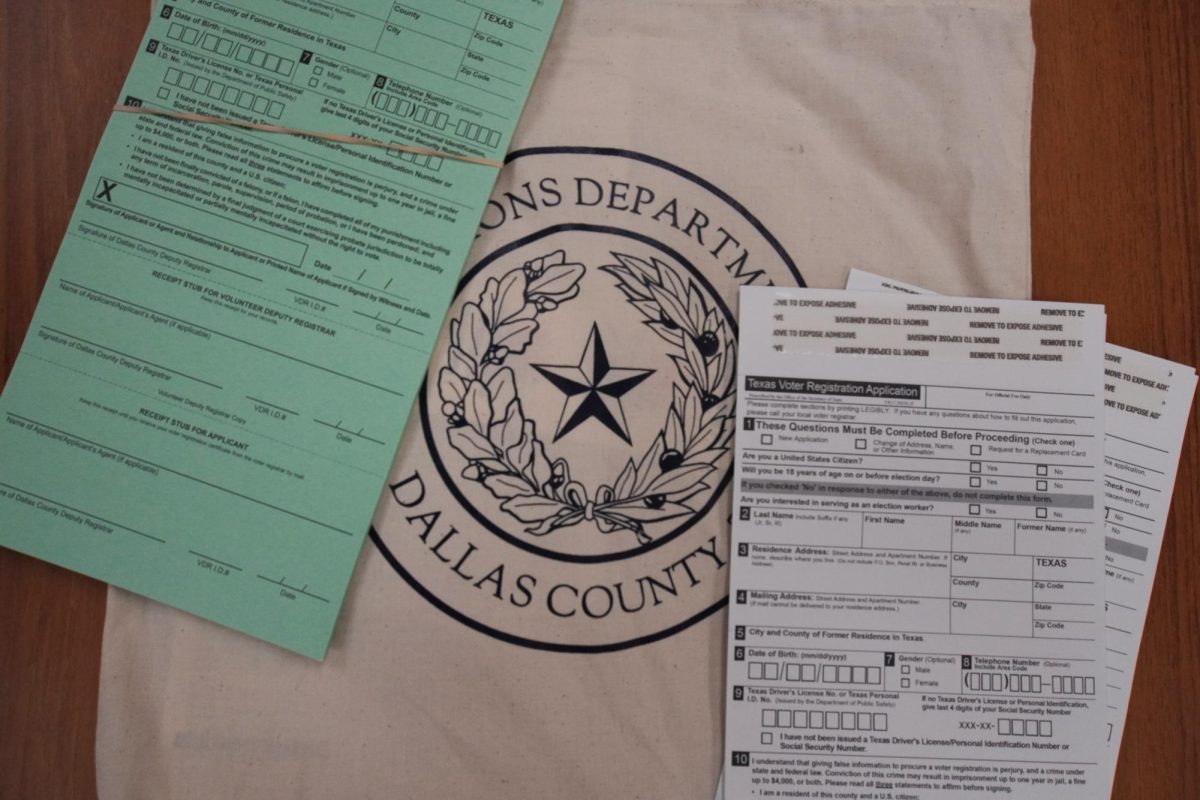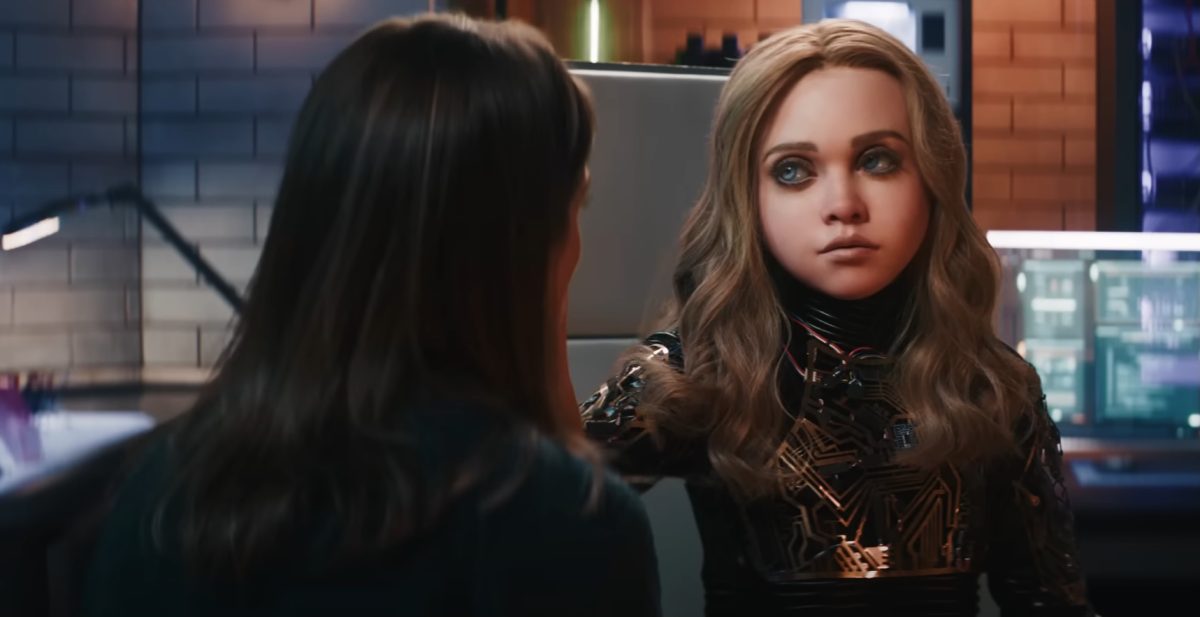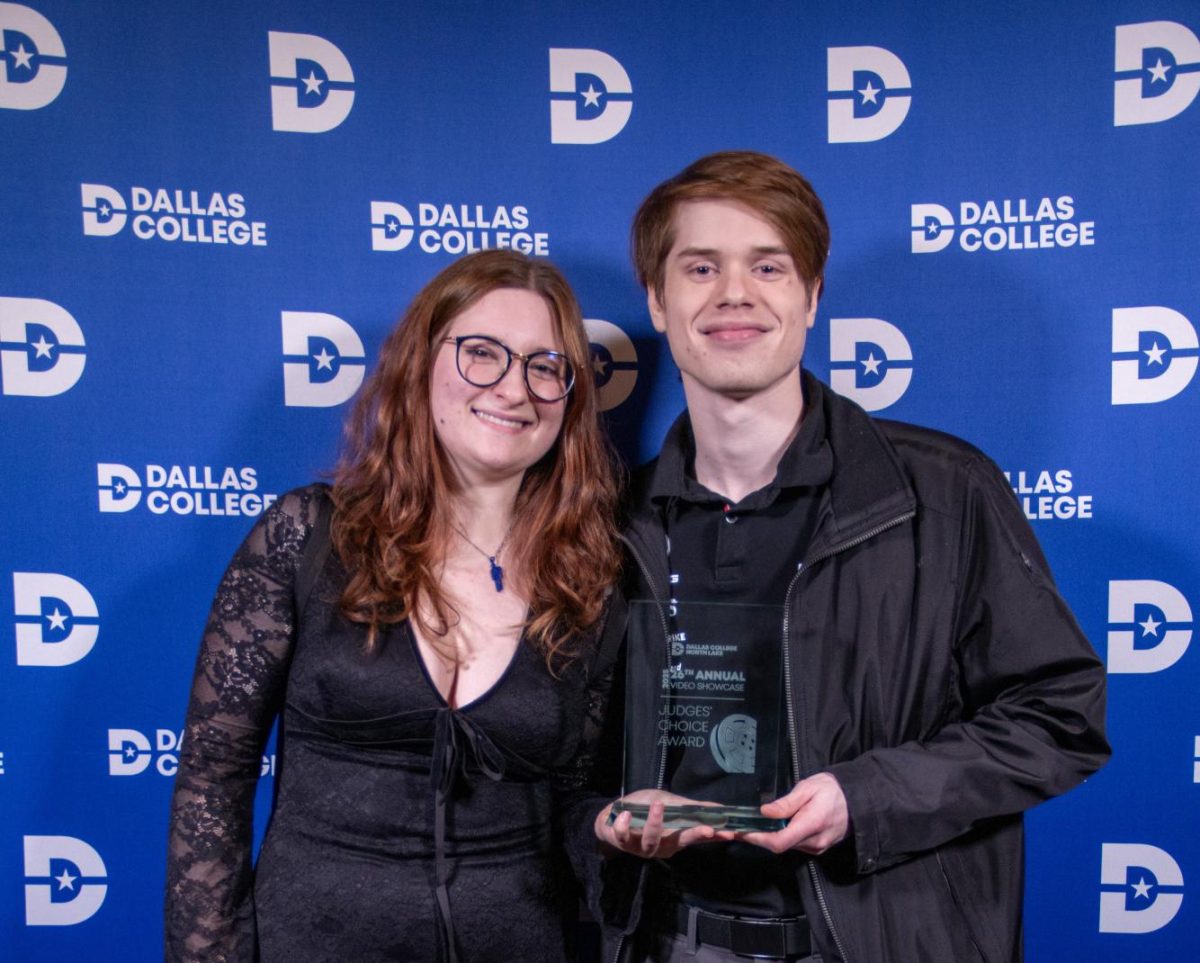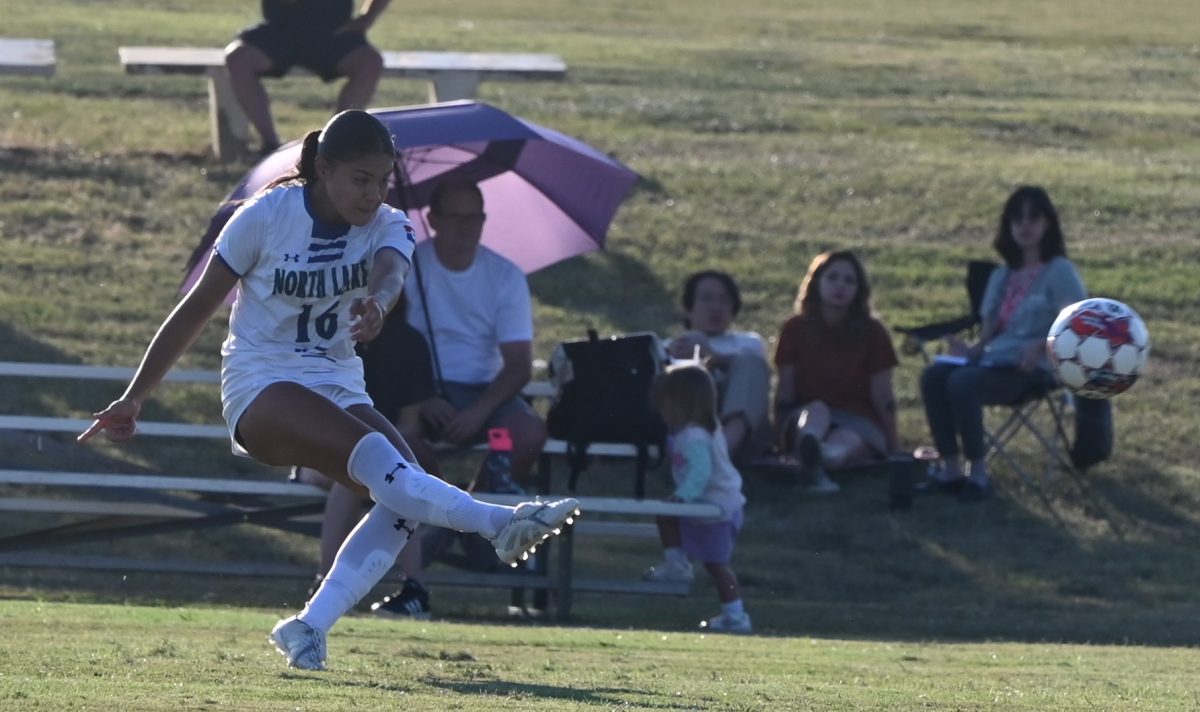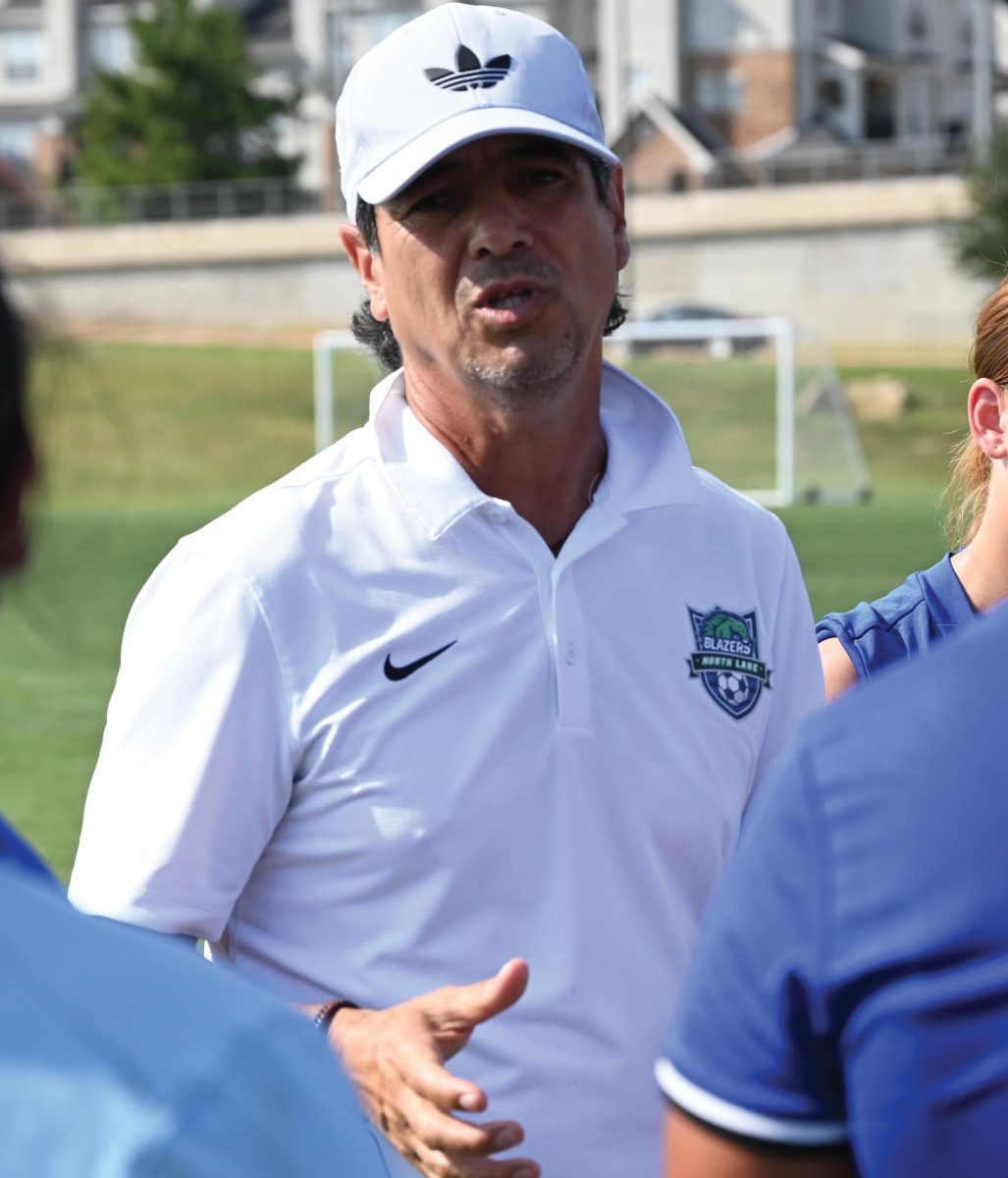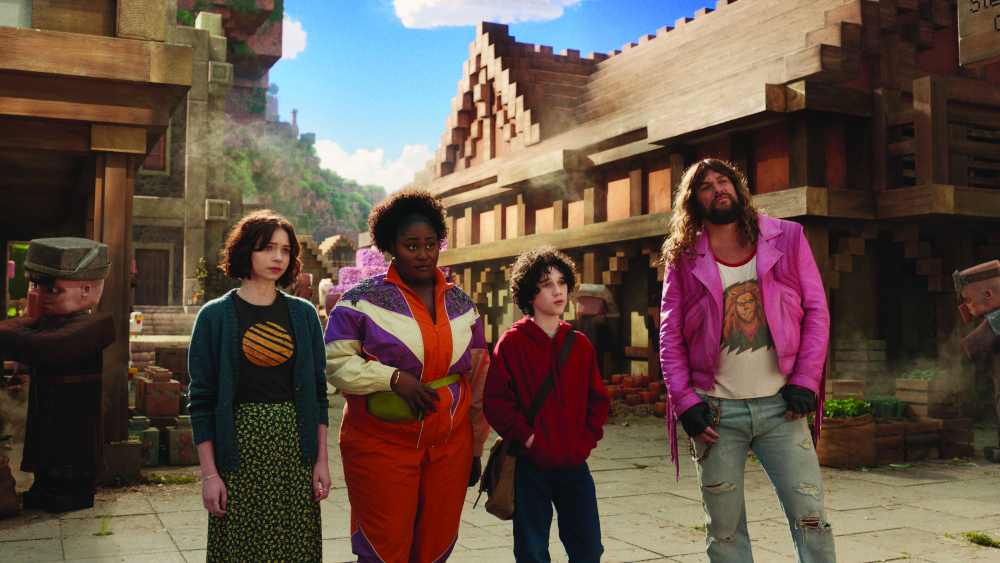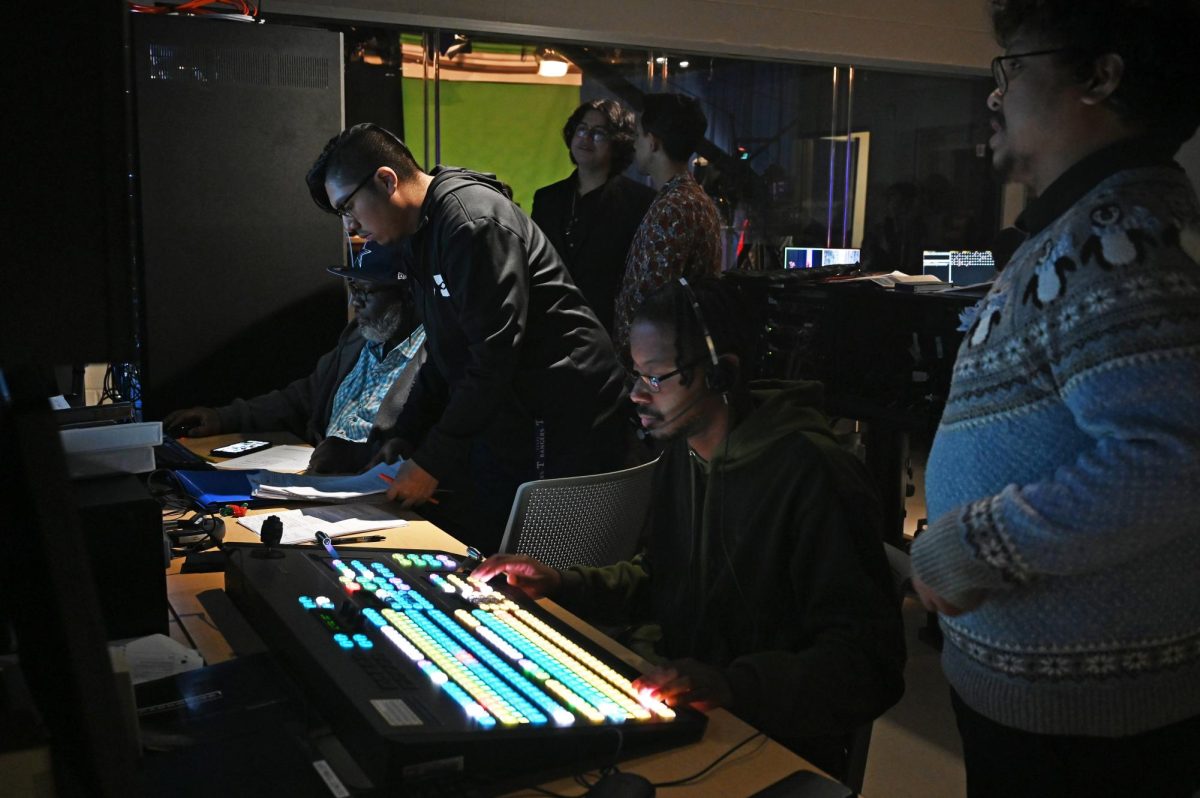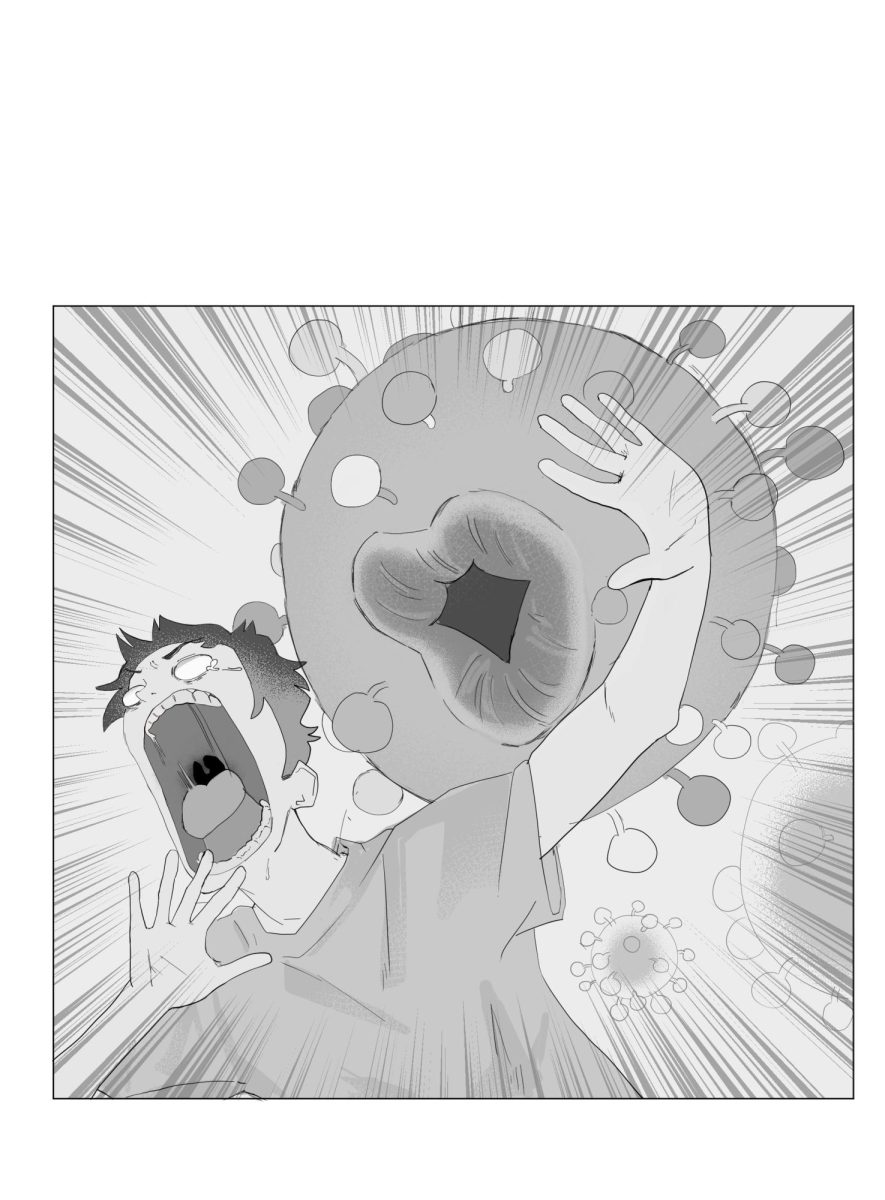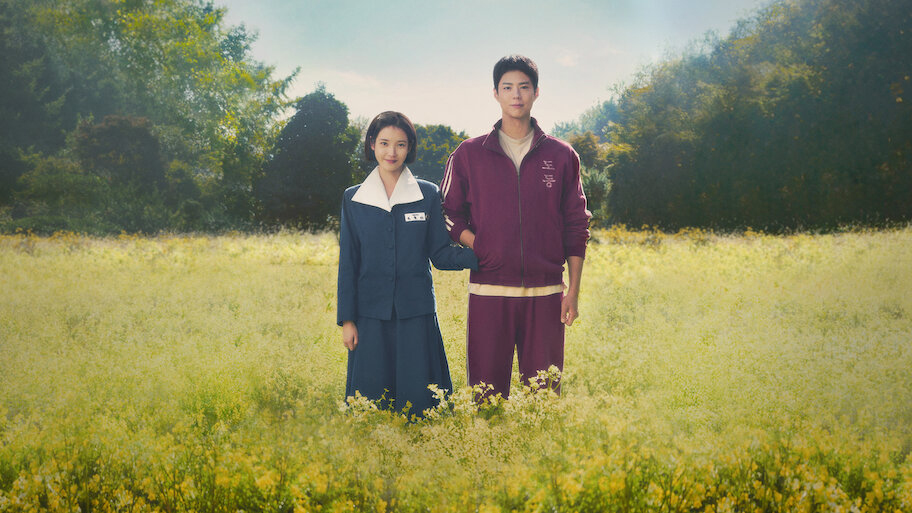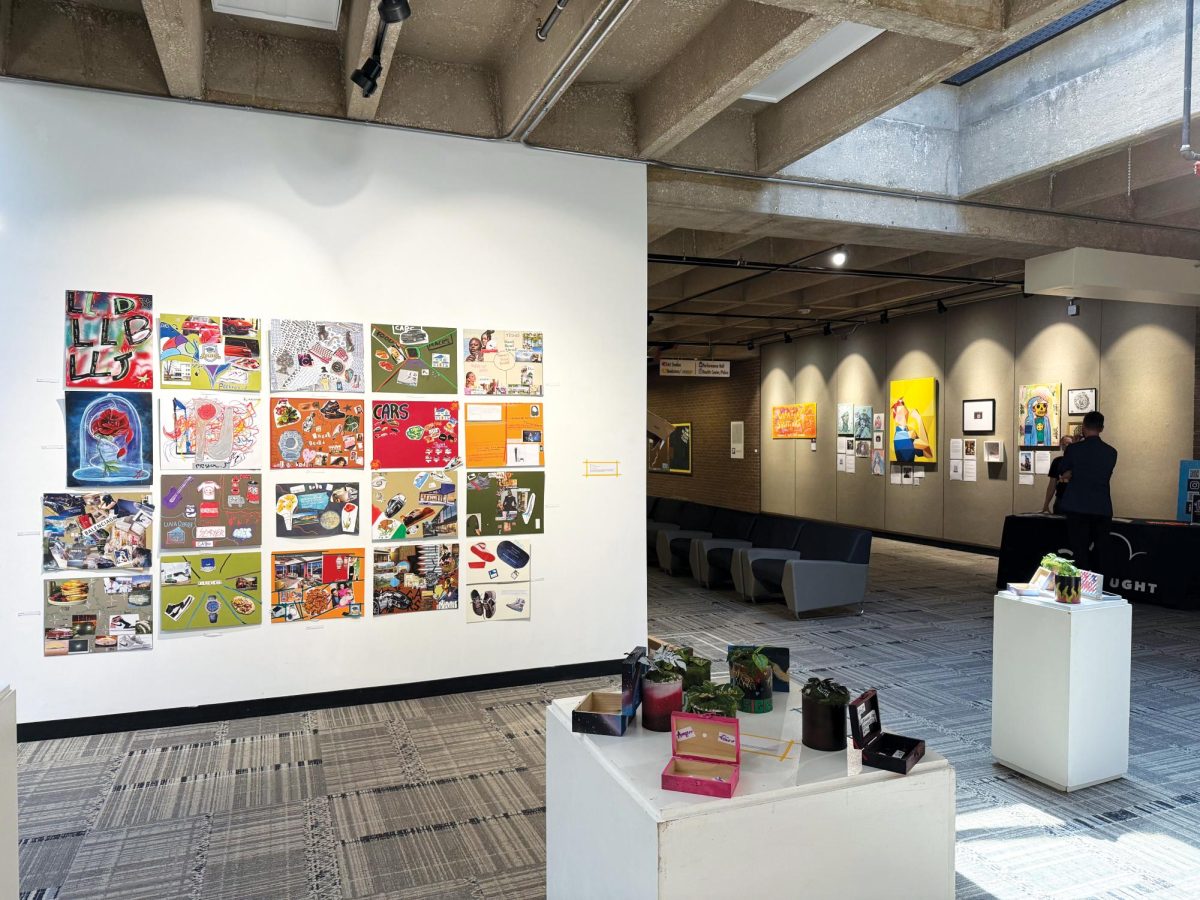Dallas College TV Studio Production class had to do a live recording of an original show for final project.
Students learned how to operate the television equipment in the studio at North Lake Campus. They practiced for hours to sharpen their creative and technical skills to ultimately be able to independently produce a 10-minute production.
Professor Greg Ruuska, who leads the video technology program, said he aims to prepare students for employment. Ruuska said: “This is not just a class, it’s an adventure. It’s an experience. You’re going to be a changed person by the end.”
Noah Woodson, Javier Basilio, Ali Barron and Rebekah Gonzalez worked together to pitch their show idea to Ruuska.
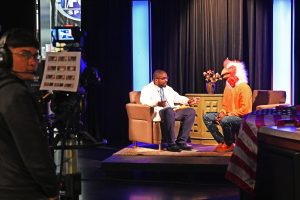
The comical production “OSN Network” starred student Chris Salinas, who acted as a fed up news anchor. It included a commercial skit of a therapist, played by student Lukas Oliver, who hypnotized his patient into becoming a chicken man.
“It was a pessimistic take on news and it had a lot of moving elements,” Ruuska said. “That’s what I liked about it.”
After their idea was approved, they created a unique script for the director, actors and audio technician.
Basilio, the show’s director, said their show was inspired by various SNL skits. Woodson, who was the technical director, said Basilio, Barron and Gonzalez all took turns writing different skits for their show. “All four of us made the production come to life,” Basilio said.
In pre-production, they made a shot list for the camera operators, planned the actors’ costumes, and searched for free usage music and sound effects. Then during their walk through, they hung up stage lights and built three stages in the studio: one for the news anchor, another for the therapist, and a green screen for multiple usage.
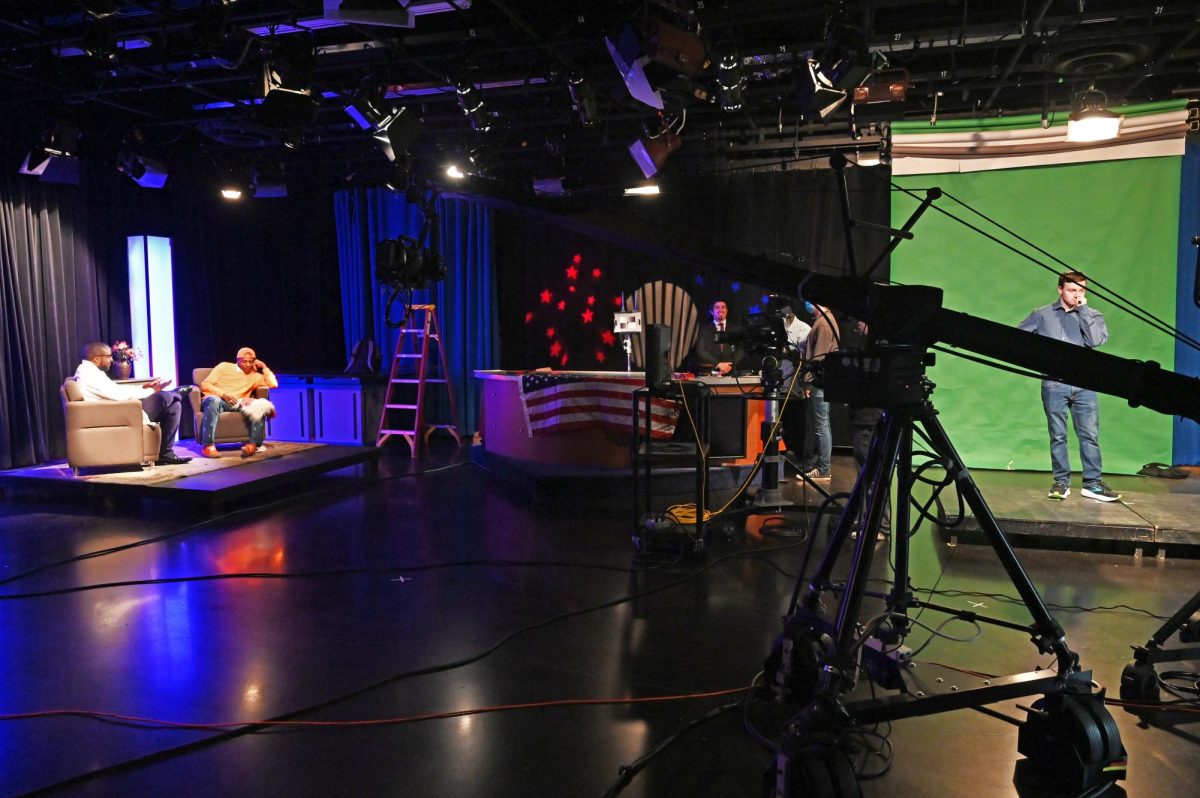
In total, it took the help of 21 students to conduct the whole production.
Their grade depended on the success of their show. If one of us messes up, everyone messes up,” Woodson said. “It’s a team effort.”
The stakes are high. In live production, there is no such thing as post-production, so they were not allowed to edit out their mistakes.
Ruuska said communication is the key to a successful live show. Students who feel confident during preproduction are the ones most likely to make mistakes. “The smart ones will figure out ‘we are really not prepared and we have to get our act together otherwise the show is not going to happen,’” he said.
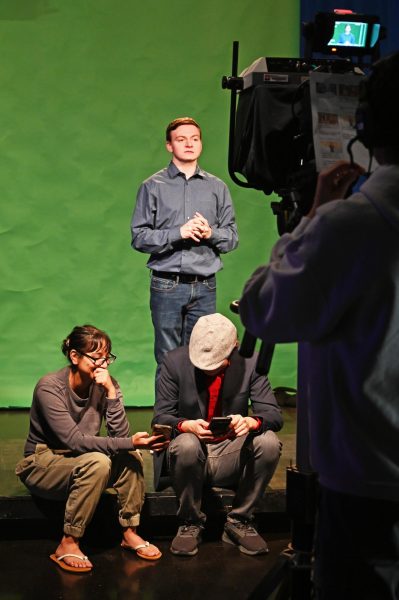
They were able to do four takes, meaning live recordings, of the show before submitting their final project for a grade at 2 p.m.
“They were constantly encountering other problems they had to solve quickly,” Ruuska said. “To be truly successful, you have to take care of business.”
“Trying to manage our time was one issue,” Basilio said. “Having to get everything situated within our time frame before 2 o’clock … we had to backtrack and accommodate for [errors].”
Employed television directors find solutions to problems every day at work. Those directors are organized, prepared and communicate clearly.
Ruuska said directors should not ask their production team to complete a task with questions beginning with the word please. Leaders have to speak with authority and confidence.
The show’s outcome was not perfect, so Balisio said he wished they could have had time for three more takes.
Woodson said he agreed with Ruuska about how much he has grown as a person because of the TV Studio Production class. “Honestly, I am enjoying it,” Woodson said. “At first I didn’t know what any of this stuff was and I didn’t think I would get this far.”
View video version of story by Merlyn Peña and Theressa Velazquez:


